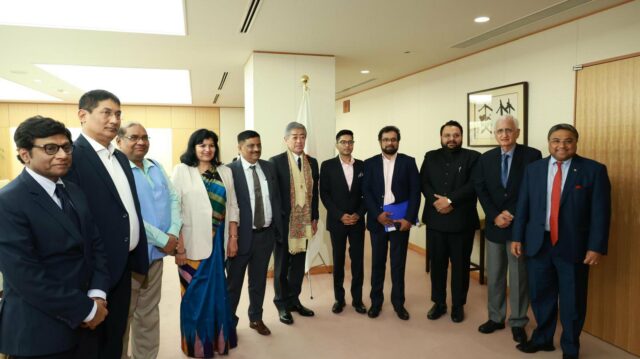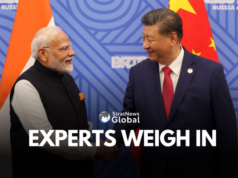
As part of a comprehensive international outreach following the April 22 Pahalgam terror attack, India has reaffirmed its zero tolerance policy towards terrorism and launched a series of diplomatic engagements across 33 countries.
Indian Delegation In Japan
During a delegation’s visit to Japan, one of India’s close strategic partners and a member of the QUAD, Tokyo extended unequivocal support to New Delhi’s counterterrorism stance.
The Indian all-party parliamentary delegation, led by JD(U) MP Sanjay Kumar Jha, met Japan’s Foreign Minister Takeshi Iwaya, who expressed deep condolences over the Pahalgam attack and condemned terrorism in all its forms. “Terrorism cannot be justified under any circumstances,” Iwaya said. “Japan stands in full solidarity with India and the global community in the fight against terrorism.”
Zero Tolerance For Terrorism
Jha reiterated India’s firm position, emphasizing that the country does not differentiate between terrorists and their sponsors. He detailed India’s precise and proportionate response through Operation Sindoor and urged Japan to support India’s call for accountability under the April 25 UN Security Council statement.
“India has a zero-tolerance policy for terrorism,” Jha stated, “and will continue to work with global partners to ensure that perpetrators and their backers are brought to justice.”
Foreign Minister Iwaya lauded India’s restraint and reaffirmed Japan’s support in international forums to hold terror actors accountable.
The delegation also met key Japanese political figures, including former Prime Minister Yoshihide Suga and Takashi Endo, Chairman of Japan’s National Security Committee. Both leaders echoed Japan’s steadfast commitment to assist India in combating terrorism. Additionally, in discussions with Japanese think tanks, participants voiced robust support for India’s stance.
About the Delegations
This diplomatic visit is part of a wider campaign that includes seven delegations of Indian lawmakers visiting 33 nations between May 21 and June 5.
Responding to media questions during a weekly briefing related to the selection of countries, Ministry of External Affairs Spokesperson Randhir Jaiswal said: “Thirty-three countries were selected for the outreach programme. Fifteen of them are members of the UN Security Council—five permanent and ten non-permanent. Five others will become members soon. The objective is to build global consensus on holding perpetrators and sponsors of terrorism accountable.”
The delegations—comprising 59 MPs, former ministers and diplomats from across political parties—will visit countries such as the UAE, Russia, Greece, Spain, the U.S., France, South and Caribbean nations and South Africa.
Their mandate is to expose Pakistan’s complicity in cross-border terrorism and rally international support against state-sponsored extremism. Pakistan, a non-permanent member of the UN Security Council for the next 17 months, is expected to push anti-India narratives.
“This is a massive diplomatic effort to underline India’s resolve to fight terrorism and to hold those responsible accountable,” Jaiswal added. “We want the world to speak in one voice against terrorism in all its forms.”
India’s proactive stance, and its diverse parliamentary leadership, sends a clear signal of no tolerance for terrorism—and that its global sponsors will be confronted diplomatically, legally and politically.




